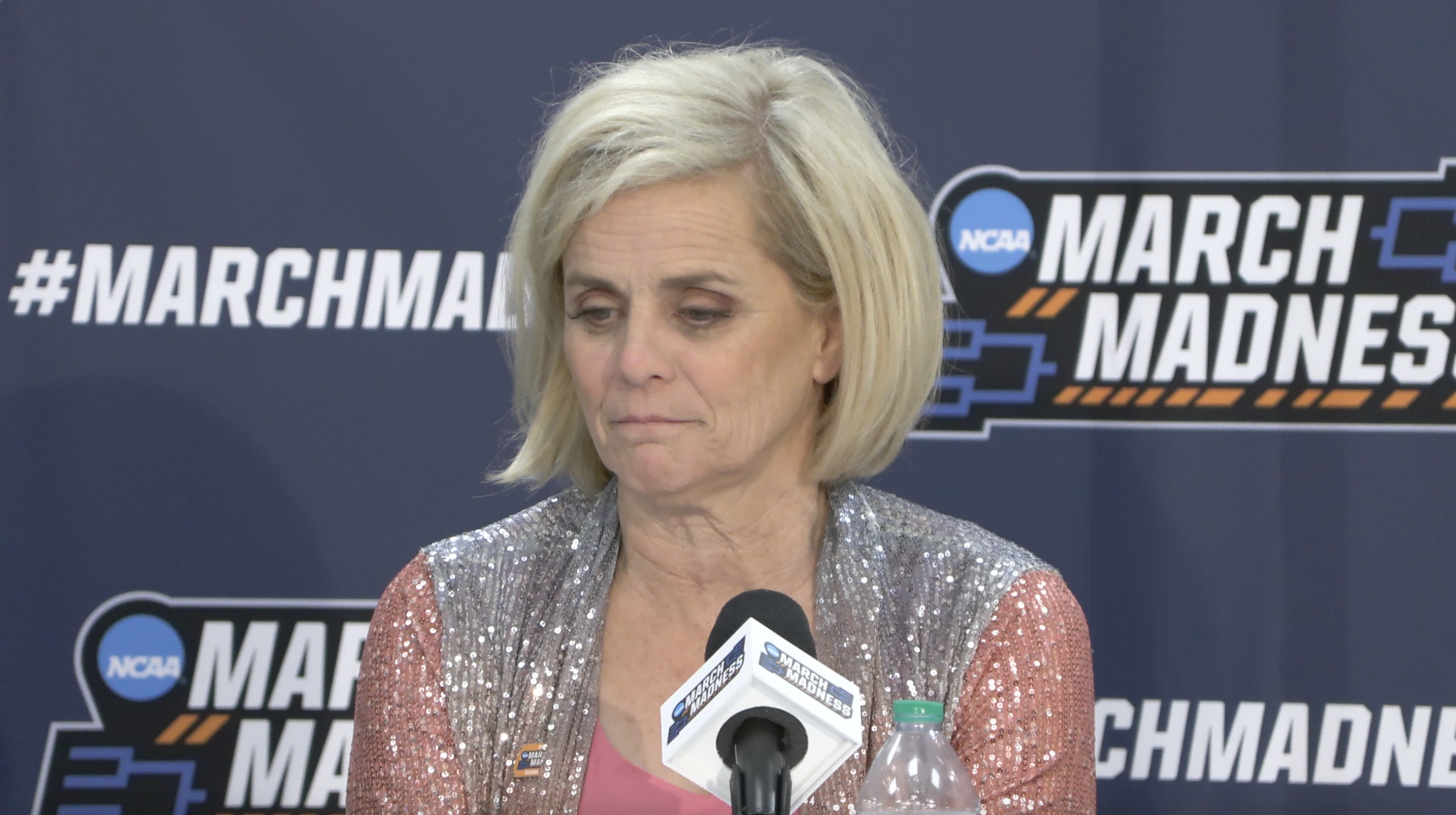I have been thinking a lot, unfortunately, about Kim Mulkey this week. Her 3-seeded LSU Tigers got spectacularly! mega! owned last night by Ohio State in the second round, losing 79-64 in Baton Rouge. At times, she stepped so far out onto the court she was practically setting screens herself. She will be absent from the Sweet Sixteen for the first time since 2008. Neither Mulkey nor her former employer gets the chance to gloat; also absent is the program with whom she made all those appearances. On Sunday in their second round matchup, the new-look Baylor Bears offered a nightmarish lesson in how to lose a basketball game. (Step One: Turn the ball over 10 times in the first quarter. Step Two: Enter the second quarter down 16-4. Step Three: Don't take advantage of your opponent's prolonged fourth quarter scoring drought. Step Four: Play the final minutes of a single-elimination tournament game as if you were conserving your energy for a fifth quarter the rest of us don't know about. Congratulations! You have been upset by South Dakota.)
IT'S OVER‼️
— espnW (@espnW) March 21, 2022
Baylor's run of 12 straight Sweet 16s is ended by South Dakota, who advances to the round for the first time EVER! pic.twitter.com/Sl8xBFCV5a
Both losses mark disappointing ends to seasons that were otherwise promising for the programs. When Mulkey left Baylor for LSU over the summer, her replacement, Nicki Collen, hired away from the Atlanta Dream, wasted little time tinkering with the team's identity. Her Baylor team played with an open, more diverse offense, an aesthetic upgrade from the paint-clogging Baylor of yore. Per Her Hoops Stats, the team scored 26 percent of its points from three this year, up from just 13 percent under Mulkey last season. The results were there, too: Baylor won the regular season Big 12 title, and did so with only a seven-player rotation. (Collen was a little screwed by the previous regime's reliance on high-level transfers.) Likely WNBA lottery pick NaLyssa Smith, in particular, flourished under a coach remotely interested in developing the team's backcourt. It was neat to watch Collen take a roster recruited by someone else and with that someone else's very particular system in mind, and do what she could with it.
It was also kind of weird. While there was something inherently strange about contender Baylor losing in the second round, there was something even stranger about the way Baylor was losing to South Dakota, depending on a three ball that just wasn't working for them that evening and giving up defensive rebounds down the stretch. A quote from Collen in the post-loss press conference made me laugh—it was so unlike the Baylor I've been used to: "I think today they were physical. They were really, really physical. We're pretty finesse-y." This is not to say a Mulkey-coached team would have won; she owns her fair share of tournament embarrassments. But I'm not sure she could have ever been accused of too much finesse.
At LSU this year, Mulkey undertook a similar challenge, bringing her own system to a roster that was little undersized to pull it off, and trying to restore glory to a program that had fallen out of favor among the school's boosters. The results certainly exceeded expectations: What was a 9-13 team last year went 26-6 this year, thanks to strong play from the team's seniors and Mulkey's transfers. A column in The Athletic today reports that Mulkey raised $1.3 million for the program in her first 10 days on the job, and that, as she headed into last night's game, she received "the kind of ovation that not even Les Miles or Ed Orgeron might have received at the peak of their popularity in Baton Rouge."
In both LSU's and Baylor's cases, the regular season offers reason to be optimistic, though Mulkey would be the first to temper those expectations. "I see it in college football," she said in a press conference last month. "You'll see these kids go win an exciting bowl game and they'll go 'We're baaaack!' and the next year they get their butts kicked. You're not back until you do it at a high level for a period of time."
Perhaps one day the Mulkey War will be settled on the basketball court, when both coaches are finally armed with "their own" players. But I much prefer imagining these programs and fanbases forever condemned to the same unsatisfying end, fates intertwined, neither able to get the upper hand on the other.






